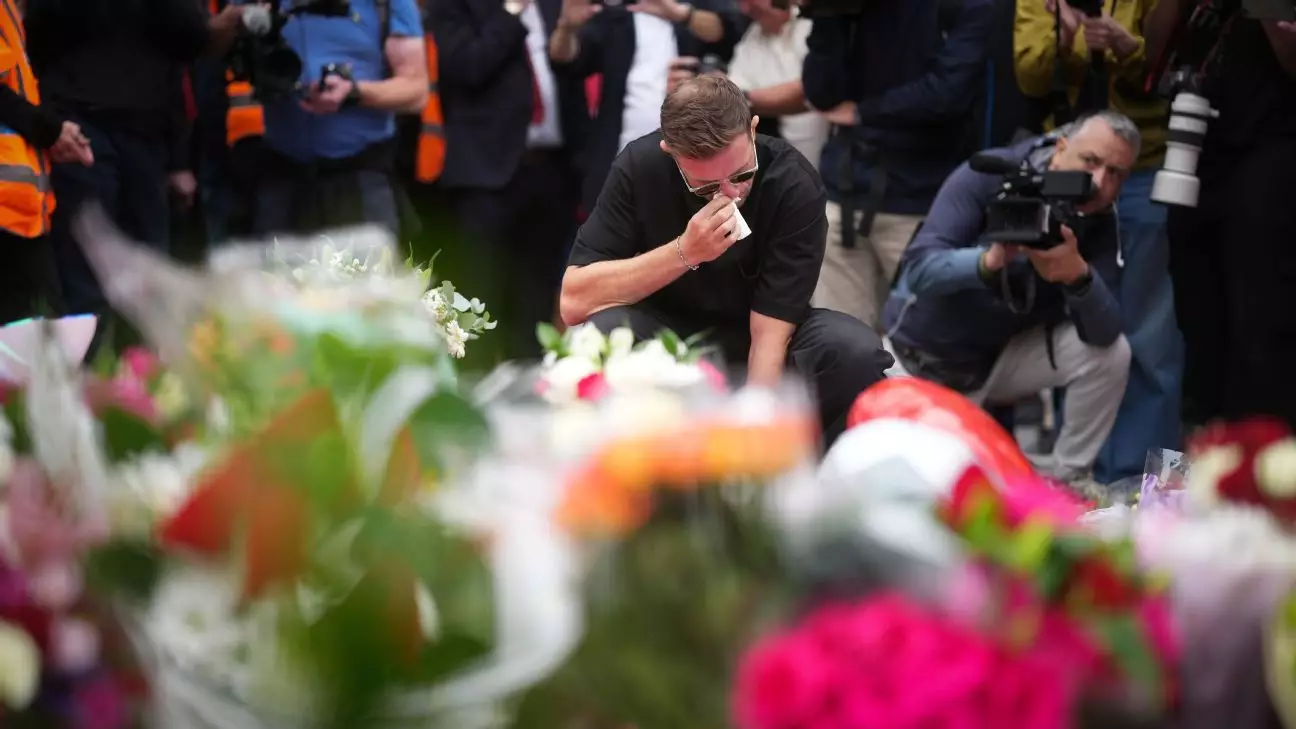In the world of professional football, players often are perceived through the lens of their athletic prowess, their accolades, and their charismatic public personas. Yet, beneath the surface of fame, there lies a universal vulnerability—one that hits far closer to home than most fans or media acknowledge. The recent tragic death of Diogo Jota and his brother in a car accident shatters the illusion that sports stars are invincible, exposing a raw, uncomfortable truth: no matter the level of success or admiration, human fragility remains constant. This event underscores an inconvenient, often neglected reality—that fame is fleeting and superficial when faced with genuine human loss.
Jota’s loss was not only a blow to Liverpool’s team but a sobering reminder that behind every football jersey is a vulnerable human being with a family, dreams, and heartbreaks. The global outpouring of grief from teammates and sports personalities underscores the deep emotional bonds forged on and off the pitch. It highlights the crucial need for society—fans, clubs, media—to acknowledge the human side of these athletes, offering empathy over spectacle, support over superficial admiration.
The Fragility of Human Existence in the Public Sphere
While Jota’s skill on the field earned him praise, his personal life—married just weeks prior, with three children—testifies to the complex reality of balancing public achievement with private vulnerability. His death, sudden and tragic, lay bare the fragile line separating normalcy from catastrophe. It prompts a sobering question: how often do society—and perhaps even the sports industry—care for the emotional and mental well-being of these figures beyond their professional narrative? The outpouring of grief emphasizes that human life is unpredictably fragile, regardless of status or talents.
The reactions from Virgil van Dijk, Jordan Henderson, Mohamed Salah, and Trent Alexander-Arnold display a collective acknowledgment of this truth. Their sentiments vacillate between grief and a sense of helplessness—an acknowledgment that even the most resilient individuals are powerless in the face of unpredictable tragedy. These heartfelt messages challenge us to reconsider how society perceives its heroes. Are we valuing their human side enough? Or do we reduce them to mere symbols of entertainment, overlooking their emotional realities? Such questions are crucial, especially when we witness these emotional outbursts from hardened professionals who rarely show vulnerability publicly.
The Myth of Endurance and the Power of Compassion
In many ways, Jota’s death exposes the myth that resilience and strength are eternal. For athletes who often push their physical and mental limits, their vulnerability becomes even more stark when life’s unpredictability intervenes. The collective grief expressed by his teammates and the broader football community dispels any lingering notions of invincibility. It’s an unapologetic reminder that compassion, empathy, and communal support are vital in times of crisis—values that should transcend stadiums and social media.
The football community’s response also reveals something deeper about our shared humanity. Mourning the loss of a young man with a family underscores that, ultimately, we are all connected through our shared mortality. It invites us to reflect on what truly matters: not fame or fortune, but human connection, love, and the fragile grace of living each day fully. The lingering image of teammates laying flowers and the emotional posts serve as an embodiment of collective mourning that champions human compassion over the superficiality of celebrity.
Questioning Society’s Priorities in Times of Crisis
While the world rightly mourns Jota’s death, it also exposes the persistent societal tendency to normalize tragedy in the lives of public figures, often overshadowing the personal toll on families involved. The focus should extend beyond commiseration to a deeper dialogue about societal priorities. Are we truly supporting mental health and emotional well-being in the sporting world? Or are we simply reveling in the spectacle of grief without addressing the systemic issues that make such tragedies even more devastating?
This tragic event invites a critical reevaluation of how societal attention is distributed—whether we are genuinely prioritizing human lives or merely observing them from a distance. Recognizing the profound grief experienced by Jota’s family should compel us to foster a culture of empathy, one that values emotional resilience and community support over superficial fame. It is precisely through this lens of genuine care and introspection that we can transform society’s response from fleeting sympathy into meaningful change.
The Imperative for Genuine Humanity in a Digital Age
In an era dominated by social media and instant notifications, society often struggles to process grief authentically. The overwhelming response to Jota’s passing demonstrates that, beneath the digital veneer, there exists an intrinsic yearning for real human connection. The football community’s heartfelt tributes serve as a reminder that, despite the superficial engagement of likes and shares, moments of genuine emotion are still possible—and necessary.
The tragedy should serve as a wake-up call. We must prioritize empathy and compassion as core societal virtues, especially in age when dehumanization can be rampant. In doing so, we reinforce that athletes are not just commodities or entertainment figures but living, breathing individuals deserving of kindness and support, particularly in their darkest hours. Let Jota’s tragic loss remind us that in the end, our shared humanity matters most—far more than medals, records, or social media metrics.


Leave a Reply